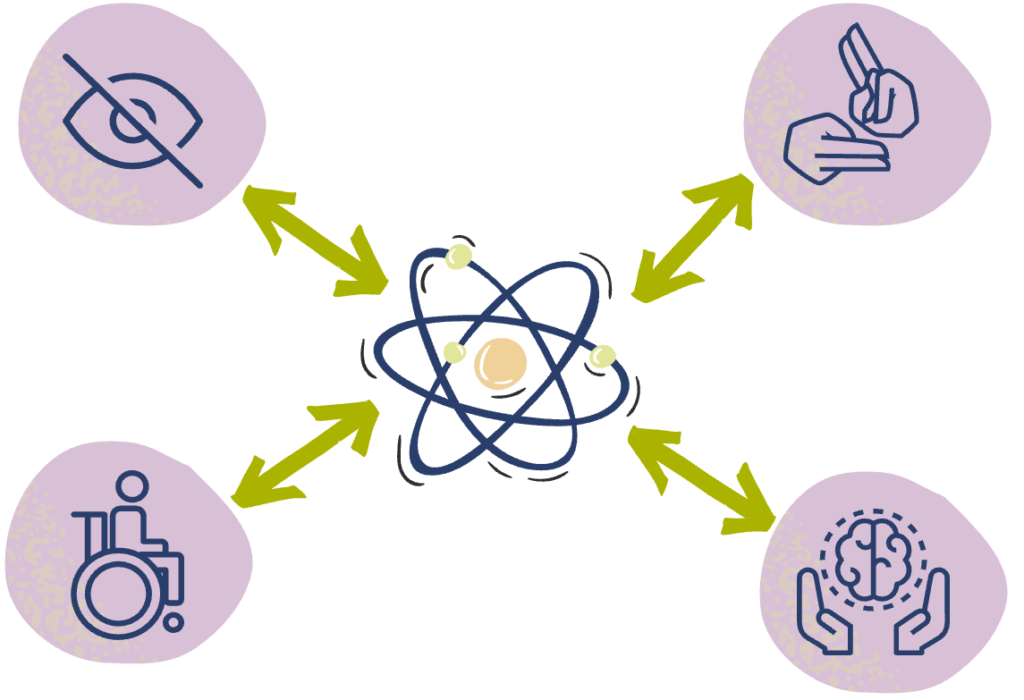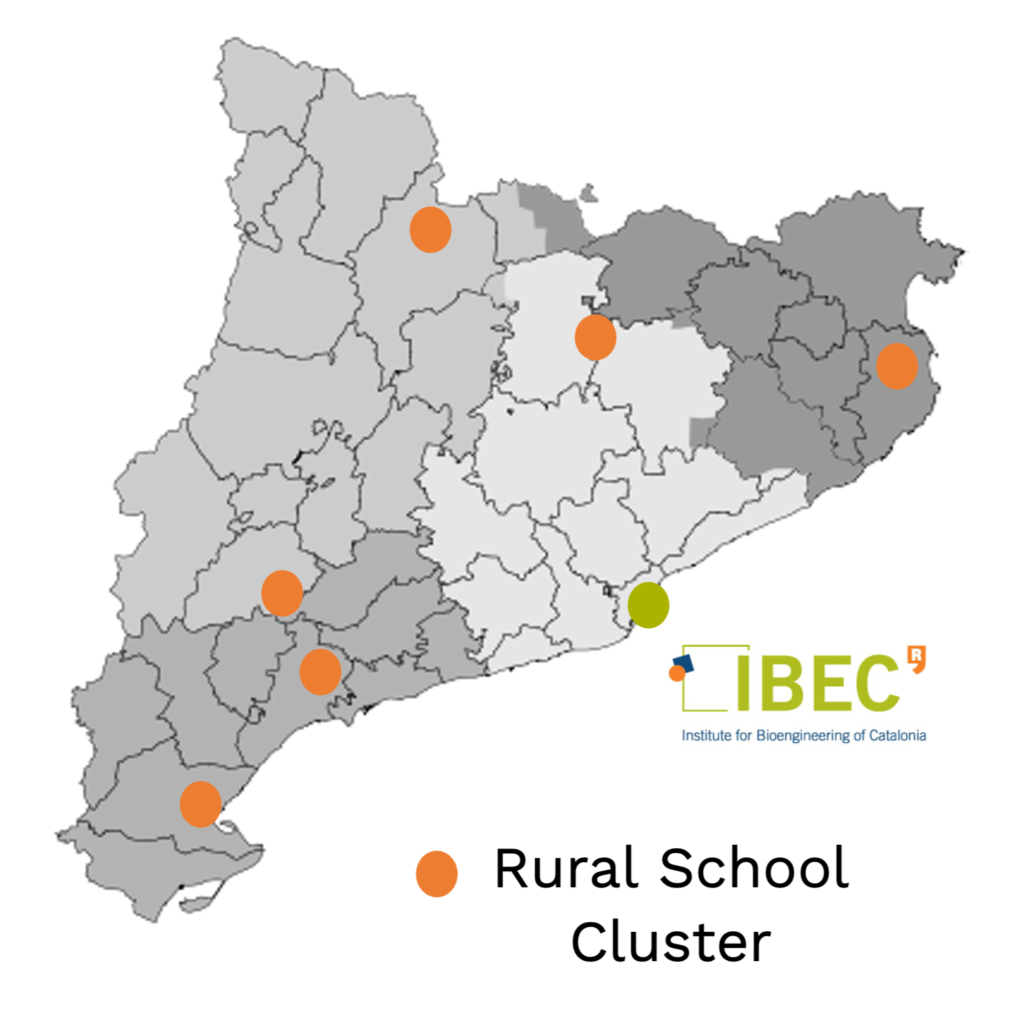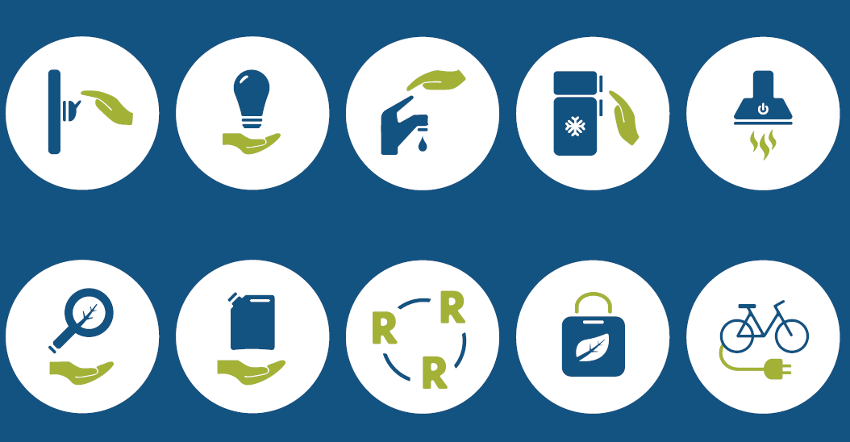As part of our core mission to bring our results back to society, IBEC develops science education projects to contribute to the democratization of science, bringing research closer to different profiles of society and, at the same time, promotes scientific vocations.
GOALS
- Bringing science closer to society.
All the proposed activities seek to bring the research projects that are being developed at IBEC closer to society. We want the public to get closer to the research that is being done, and to meet its protagonists. - Awake and consolidate scientific vocations.
We want young people to take an interest in science and technology, but we also want those who are already interested to consolidate it.
OUR VISION
- We seek to contribute to science education by maintaining a close dialogue with teachers and students, which allows us to adapt our projects to the reality of the classroom and strengthen the educational curriculum.
- We ensure gender diversity in all proposed activities, reinforcing the figure of women in science.
- We want to ensure that our activities are inclusive and adapted to functional diversity.
- We propose integrating projects that seek the participation of different sectors of society.
- The approach to challenges and the promotion of autonomous learning are common features of the activities we carry out, thus reinforcing the critical spirit.
TARGET AUDIENCE
- Primary school students (between 3 and 12 years old)
- High school students (between 13 and 18 years old)
- Lifelong learners
- Primary and secondary school teachers
ACTIVE EDUCATION PROGRAMES
The educational projects that we develop at IBEC currently are structured into 6 programs: Social Impact, Inclusion, Territory, Citizen Science, Scientific Vocations, and Art and Science.
TRAINING AND PEDAGOGICAL INNOVATION
The training and pedagogical innovation program encompasses projects that cause a positive change in our social environment.
The STEAM Angeleta Ferrer project puts a secondary school in direct contact with the BIST research centres. This alliance will allow the institute to become a training centre for teachers in the STEAM areas, in addition to making innovative teaching experiences in the field of science available to the educational community.
The Postgraduate Course in Innovation in Science Education coordinated by Fundació Catalunya la Pedrera and BIST aims to train the new professionals on the field on non-formal scientific education.
IBEC as a BIST member has been involved in the creation and has a role at the academic direction.
The programme combines innovation, leadership, communication, and project management to design and implement initiatives that enhance the learning of science and technology.
OPEN EDUCATIONAL RESOURCES
IBEC Open Educational Resources (OERs)
IBEC will create and publish openly educational materials to be used at schools, to explain and understand scientific matters. These materials will be deposited in OER repositories, and listed here:
![]() OER Commons: https://www.oercommons.org/profile/376588
OER Commons: https://www.oercommons.org/profile/376588
![]() ProComún: https://procomun.intef.es/user-public/44713
ProComún: https://procomun.intef.es/user-public/44713
- Guió de Treball de Recerca: Com funcionen els mètodes de conservació naturals?
- Nanomedicina: la nanociència arriba a l’aula de primària
- El Cervell: guia d’activitats per treballar el cervell a l’aula de primària
![]() STEMarium: https://stemarium.gestioeducativa.gencat.cat/pg/lds/profile/21247
STEMarium: https://stemarium.gestioeducativa.gencat.cat/pg/lds/profile/21247
(previous register needed to access contents, in catalan)
- Taller – La Cèl·lula (RECURS INCLUSIU)
- Taller – Medicaments del futur (RECURS INCLUSIU)
- El Cervell: guia d’activitats per treballar el cervell a l’aula de primària
- Nanomedicina: la nanociència arriba a l’aula de primària
INCLUSION
The inclusion program seeks to equally integrate all students in science education regardless of race, gender or disability, thus guaranteeing equality and non-discrimination of all groups.
The Magnet Alliances project in which IBEC participates seeks to reverse school segregation and thereby contribute to a more diverse and representative education of the environment.
Gayarre School and IBEC work together to share experiences and learn. Science, inquiry, and experimentation are learning processes used by the school to carry out the scientific method and to build knowledge. The centre works with the institution of excellence to grow and meet the challenges of todays and tomorrow’s society. IBEC, as a travel companion, helps the school incorporate a scientific perspective into everyday life. Within a globalized approach to learning, inquiry, creativity, and reflection are encouraged.

Our project Inclusive science: attention to diversity in science education projects, wants to provide the necessary tools to transform science education proposals into proposals that ensure the participation and benefit of all students and help implement universal accessibility in science education activities, thus guaranteeing access for all boys, girls and adolescents to scientific culture.
With this project, we will seek formulas that allow us to approach scientific knowledge from different angles, designing multiple ways of accessing information (visual, written, sensory, etc.), providing spaces for reflection and guaranteeing learning at different rates of understanding.
We believe in the need to develop scientific education proposals where all male and female students feel integrated and where they can find a variety of materials adapted to their needs, guaranteeing their access to science and technology.

The 100tífiques project, is an initiative of the Catalan Foundation for Research and Innovation (FCRi) and the Barcelona Institute for Science and Technolgy (BIST), with the collaboration of the Department of Education of the Generalitat de Catalunya and of the Catalan Women’s Institute.
IBEC has involved to make visible and highlight the relevance and strategic role of women in science and technology. The programme encourages the scientific women to give a motivational talk at the primary and secondary schools.
TERRITORY
The Territory program wants to contribute to disseminating scientific education in an equal manner throughout the territory, avoiding the centralization of educational projects in large urban centres.
The Rural Schools project has been developed to bring bioengineering to smaller schools and those with less access to the scientific environment.
Every year, a team of IBEC researchers travels to different rural schools in Catalonia to bring workshops and science activities to the most distant areas. IBEC also opens its doors to these schools so that students can visit our facilities and meet researchers in their environment.

SCIENTIFIC VOCATIONS
The program for promoting scientific vocations is designed to give students the opportunity to experience the scientific environment.
Crazy for Bioengineering project was built with the idea of publicizing the multidisciplinary environment offered by bioengineering, where different disciplines come together to solve health-related problems. The main objective of this course is to encourage scientific vocations and promote knowledge and education of excellence for young people in Catalonia.
The programme Secondary Students Stage helps students to perform their research project. For the students interested in a scientific degree, having the opportunity to participate in a real research project is of outmost interest in order to complete the theoretical learning they receive in school. For young researchers involved in the project, having the chance to tutorize one of the students is a great complement to their soft skills training.

The Creative Talent and Company project offers a science-based artistic project to students from different artistic disciplines.
Thanks to the first participation on this program, a new superhero was born: IBBI, the bioengineering superhero. After this great success, the IBEC has twice again presented a challenge to plastic art students, to continue promoting the dissemination of science, an animation explaining what bioengineering and a series of a pictogram of sustainable research.
https://ibecbarcelona.eu/ibec-committed-with-the-creative-talent-of-the-future/
https://ibecbarcelona.eu/the-art-of-explaining-bioengineering-in-images/


